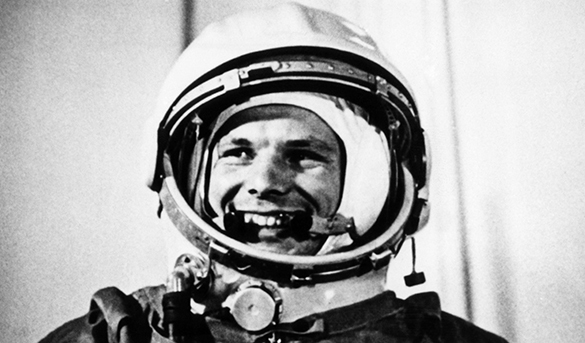Yuri Gagarin’s smile remains symbol of space exploration
Yuri Gagarin (born March 9, 1934) became a legend while alive. He became world-famous after the USSR’s successful launch of world’s first-ever manned spacecraft. He did not have a vestige of superiority complex because of his fame and will always be remembered as a simple, friendly man. His sincere smile symbolizes the era of space exploration, since his historical flight into space on April 12, 1961.

“We remember him the way that he was – a handsome, responsible, hard-working and friendly person,” late cosmonaut Georgy Grechko said.
Gagarin’s life is still shrouded in mystery. Rumour has it that the space legend was born on March 8, the International Women’s Day. Medics believed that it would not be correct for a boy to celebrate his birthday on such a day and indicated March 9 as his birth date. Nevertheless, Yuri Gagarin personifies the image of a real man.
Gagarin was born into a family of a peasant. “He became a pilot and then the world’s first-ever cosmonaut. He could find common language with anyone, even with the British Queen, who once invited him for dinner,” cosmonaut Pavel Popovich said.
He became the most famous and probably the most recognizable man on the planet at age 27.
Gagarin was born in the Smolensk region, but he is considered a native of the city of Saratov too, because he studied there. He was a student of the Saratov Industrial College, and subsequently became a member of the local flying club.
The stamps with the portrait of Yuri Gagarin on them appeared in Europe in April 1961 and in May of the same year in Asia. The image of Yuri Gagarin was printed on the post stamps of Togo, Africa. The portraits of the first four Soviet cosmonauts were printed on Cuban stamps in February 1963.
On 12 April 1961, Gagarin became the first human to travel into space aboard the Vostok 3KA-2 (Vostok 1). His call sign in this flight was Kedr. During his flight, Gagarin famously whistled the tune "The Motherland Hears, The Motherland Knows." The first two lines of the song are: "The Motherland hears, the Motherland knows/Where her son flies in the sky". This patriotic song was written by Dmitri Shostakovich in 1951 (opus 86), with words by Yevgeniy Dolmatovsky.
There are speculations in the media that when in orbit, Gagarin said: "I don't see any God up here." However, no such words appear in the verbatim record of Gagarin's conversations with the Earth during the spaceflight. In a 2006 interview, a close friend of Gagarin, Colonel Valentin Petrov, stated that Gagarin never said such words, and that the phrase originated from Nikita Khrushchev's speech at the plenum of the Central Committee of the CPSU, where the anti-religious propaganda was discussed. In a certain context Khrushchev said, "Gagarin flew into space, but didn't see any God there". Colonel Petrov also said that Gagarin had been baptised into the Orthodox Church as a child.
Pravda.Ru
Subscribe to Pravda.Ru Telegram channel, Facebook, RSS!


